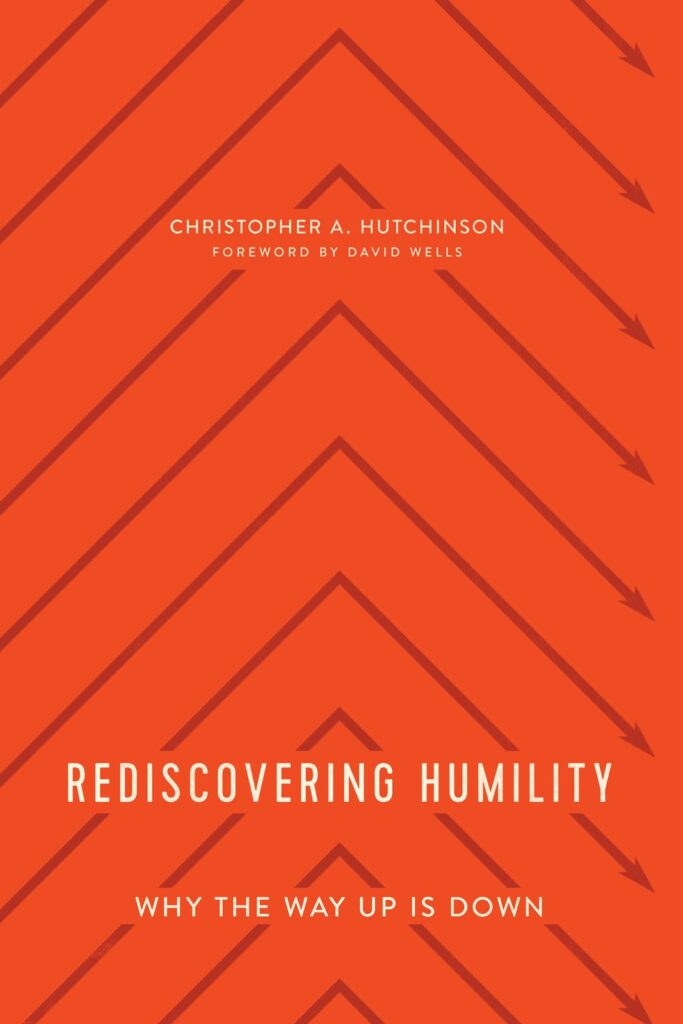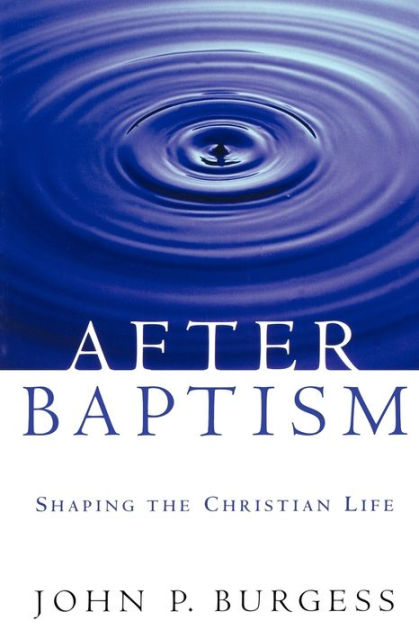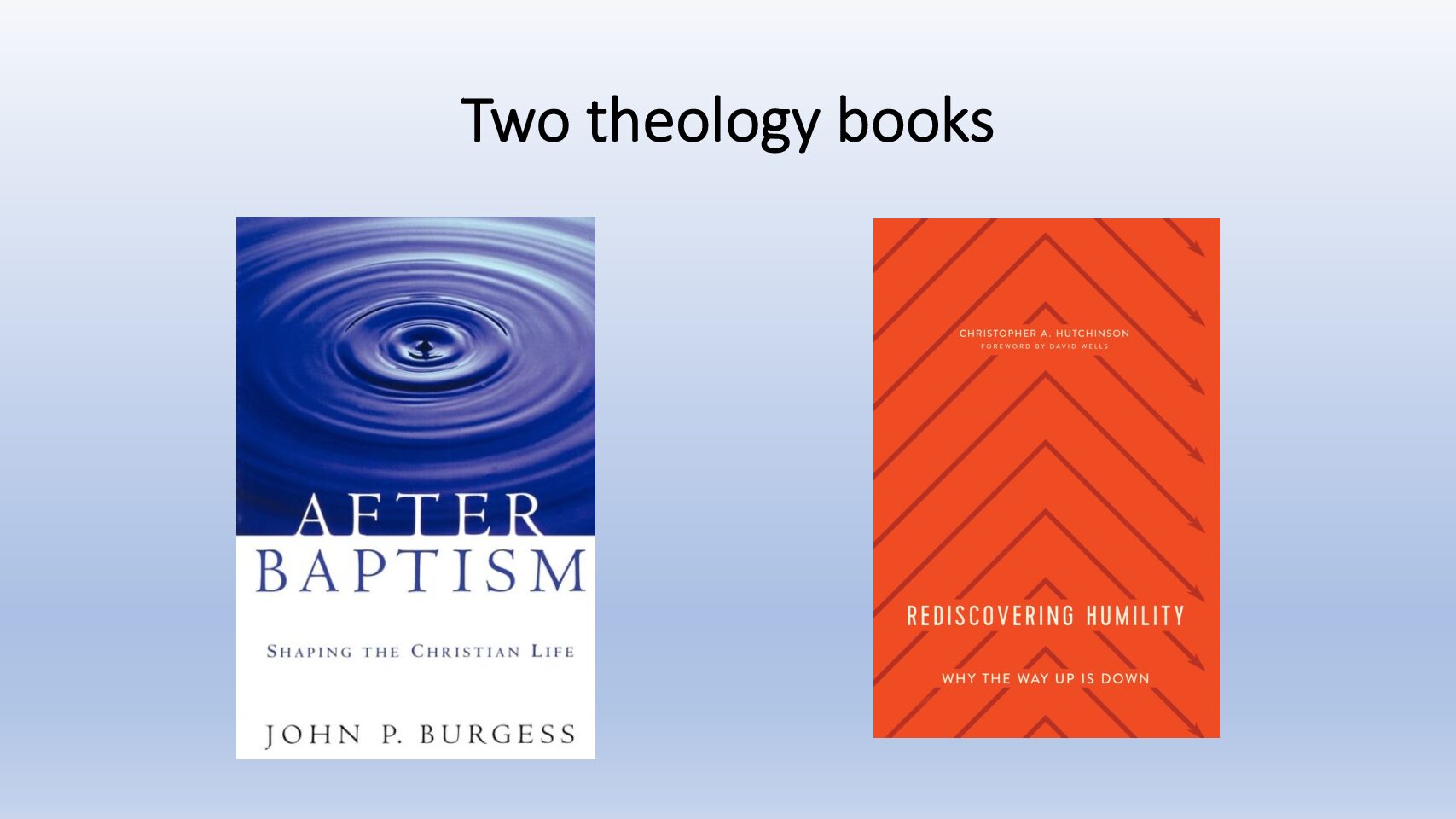
Christopher A. Hutchinson, Rediscovering Humility: Why the Way Up is Down
(Greensboro, NC: New Growth Press, 2018), 250 pages including endnotes and scriptural references.
It is the gospel itself that demands humility.
Therefore, Christian discipleship cannot be supplemented with a dash of humility for flavor,
but must have humility as the main ingredient. (page 31)
Hutchinson thesis is that humility is the center of the gospel. It’s not just something for which we’re to give lip service or to try harder to achieve. It is certainly not a contest to see how we can be humbler than someone else (that would be a self-defeating effort if there ever was one). Instead, humility comes from our relationship with God through Jesus Christ, who humbled himself by coming to us in the flesh.
However, humility is not a virtue with much value in society, which makes this book even more valuable. We recognize and reward those who are strong, not the meek. The economics systems upon which our society is based awards strength and in this manner is antithetical to Scripture and the Kingdom. Jesus speaks of the last being first, storing our treasurers in heaven, and blessings showered upon the meek.
Drawing heavily up the Puritans, Hutchinson clarifies what humility is and isn’t. He uses examples from his time as an officer in the U. S. Army during Desert Storm and from his ministry. A promising student graduating at the top of his class, Hutchison headed into ministry only to be voted out of his first call after only a year in ministry. Such an experience provides Hutchinson with a valuable tool. Leadership is about service and focusing on others. He writes about presenting the Elders in his church, upon their ordination, a toilet plunger to remind them of their role of service in the life of the church.
From the individual to leaders within the church, Hutchinson examines humility from many points of view, not just from the view of the individual. He explores its meaning in relation to the Sabbath, Church doctrine, Church unity, relations with unbelievers, and nationalism. The sanctuary in which he worships doesn’t have an American flag because the church is for all people, not just Americans. Likewise, he has refused to hold services that honor the Scottish heritage of Presbyterianism. I found this to be honest and refreshing (but I’m not sure what I’d do with my kilt if there were no such Sundays).
As a pastor in the conservative Presbyterian Church of America, which does not allow women in governance, Hutchinson refers mostly, but not exclusively, to male leadership. However, Hutchinson avoids falling into the macho Christian image for men and, as he did with certain strains of nationalism, repudiates such views.
This is a book that should be read and studied by Christian leaders. In a world where power and might rules, the church needs to model humility.

John P. Burgess, After Baptism: Shaping the Christian Life
(Louisville, KY: Westminster/John Knox Press, 2005), 155 pages including index and notes.
The sacraments and commandments remind us that being Christian is not only a question of what we believe but also and foremost a question of how we live. Christians are a people who live out their faith. (page xiii)
We can of course continue to ignore our need to confess sin.
We can continue to pretend that we have no hunger, no thirst.
But then we refuse to admit our dependency on God and others,
and deny the fundamental fact that we cannot give ourselves life but, rather,
have to receive whatever good we have from a source of life beyond ourselves. (page 137)
How are we to live as followers of Jesus? John Burgess, a professor of Systematic Theology at Pittsburgh Theological Seminary provides a theological framework for such a life. This is a theological work, not a how-to book. Burgess doesn’t provide tricks to help us grow in our faith. Instead, drawing heavily on John Calvin and Martin Luther, along with Dietrich Bonhoeffer’s Life Together, he focuses on how we are to shape our lives. He bookends his thesis with the two Protestant sacraments (Baptist and Eucharist) and in-between explores the meaning of the 10 Commandments.
Early in the book, Burgess introduces the three interpretative moves from the Reformation which help us understand the commandments. These moves broaden each commandment (murder can be more than physically killing someone). Then they internalize the commandments (wrong desires underlies every violation of the commandments). And finally, they reverse the commandments. Every negative commandment also has a positive side (see the Westminster Larger Catechism with each one having a list of what the commandment requires and well as prohibits). While Burgess has something to say about all ten, he devotes most of his writing to the center commandments (keeping the Sabbath, honoring parents, and not killing).
By bookending his thesis with the sacraments, Burgess makes the case that the Christian life is not shaped by the individual but by God through the Christian community. Christianity isn’t an individual quest, but one lived out together (as Bonhoeffer makes clear in Life Together). He also provides a theological and biblical foundation for infant baptism.
Burgess draws from many personal stories, including writing about his own children’s baptism, his family history that includes German Jews, the impact of 911, hiking in Colorado, and his ecumenical work in Eastern Europe.
If one is looking for a book of ideas of how to grow as a Christian (such as how to pray, or to study scripture, etc.), this book probably won’t be of much help. But if one is serious about living a Christ-like life in a complicated world, After Baptism book provides much to consider. This book should be used in seminaries. I found myself wishing that Burgess had taught at Pittsburgh when I was a student there. Realizing he’s been at Pittsburgh 25 years made me feel even older as I graduated almost a decade before he started.
A Parting Shot



You amaze me with the amount of reading you manage, Jeff. Your reviews are always excellent. I love the sunset photo. You live in a beautiful area.
Interesting! I always enjoy your picks, and photos, and you’ve gifted us with this incredible nature moment, very nicely done. Enjoy what’s left of this weekend and on to the new week ahead. Take care.
Thanks, Karen. I do enjoy winter sunsets as the bare trees appear to glow as if in a fire.
I do think Americans are cherishing humility more now than ever. I like strength and power in belief, but i see where there should be a balance between the two.
I don’t see us cherishing humility that much. We like to brag too much about what we’ve done (and I’m guilty and some are guilty even when they haven’t done what they say they’ve done such as one particular member of congress) instead of continually giving God thanks for our blessings.
I don’t think either of these will make my TBR pile, but both sound interesting – especially After Baptism.
Gorgeous sunset.
While I think both books have good things to teach, I wasn’t expecting either to be a top pick except maybe other clergy and academic types.